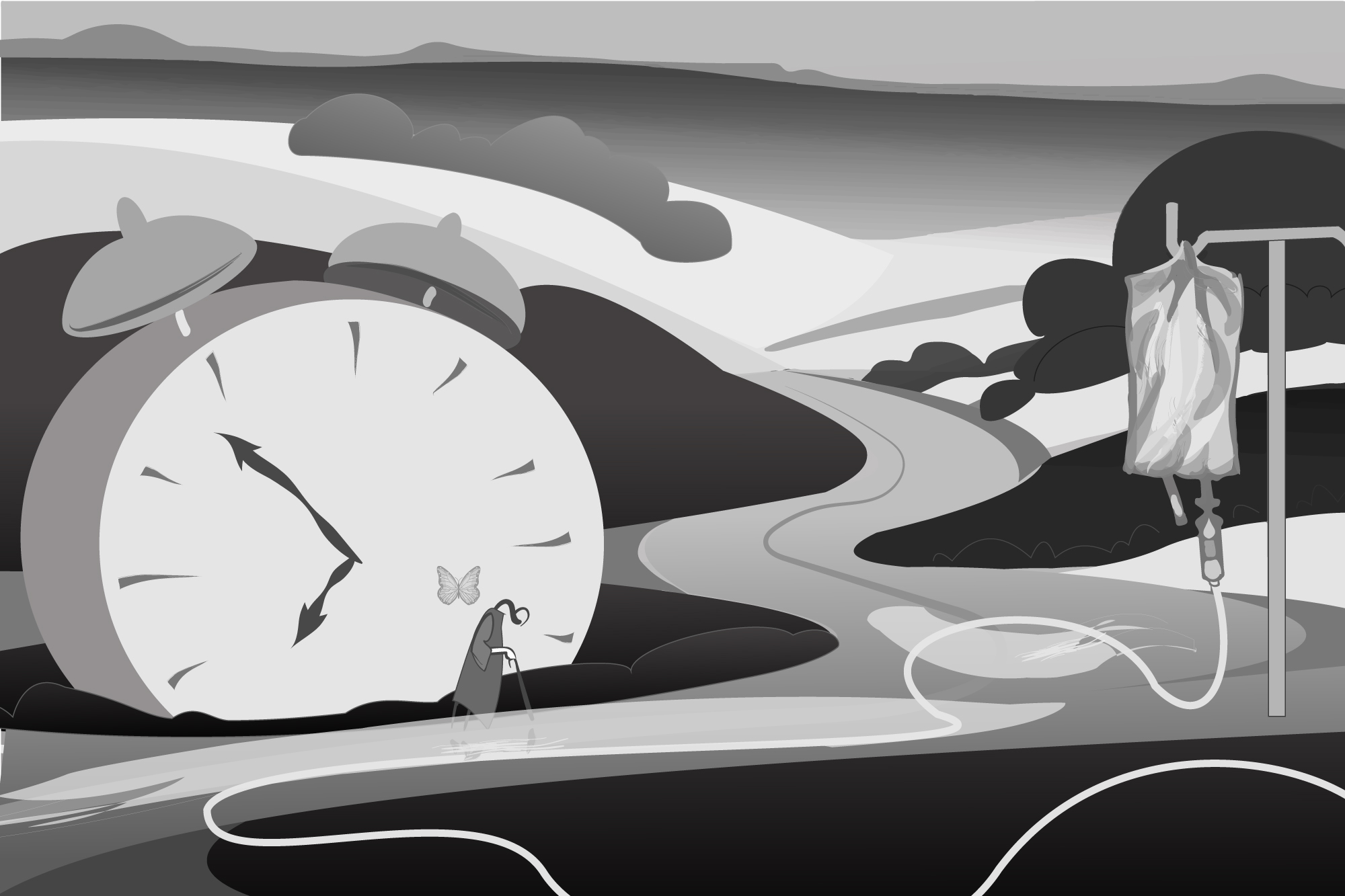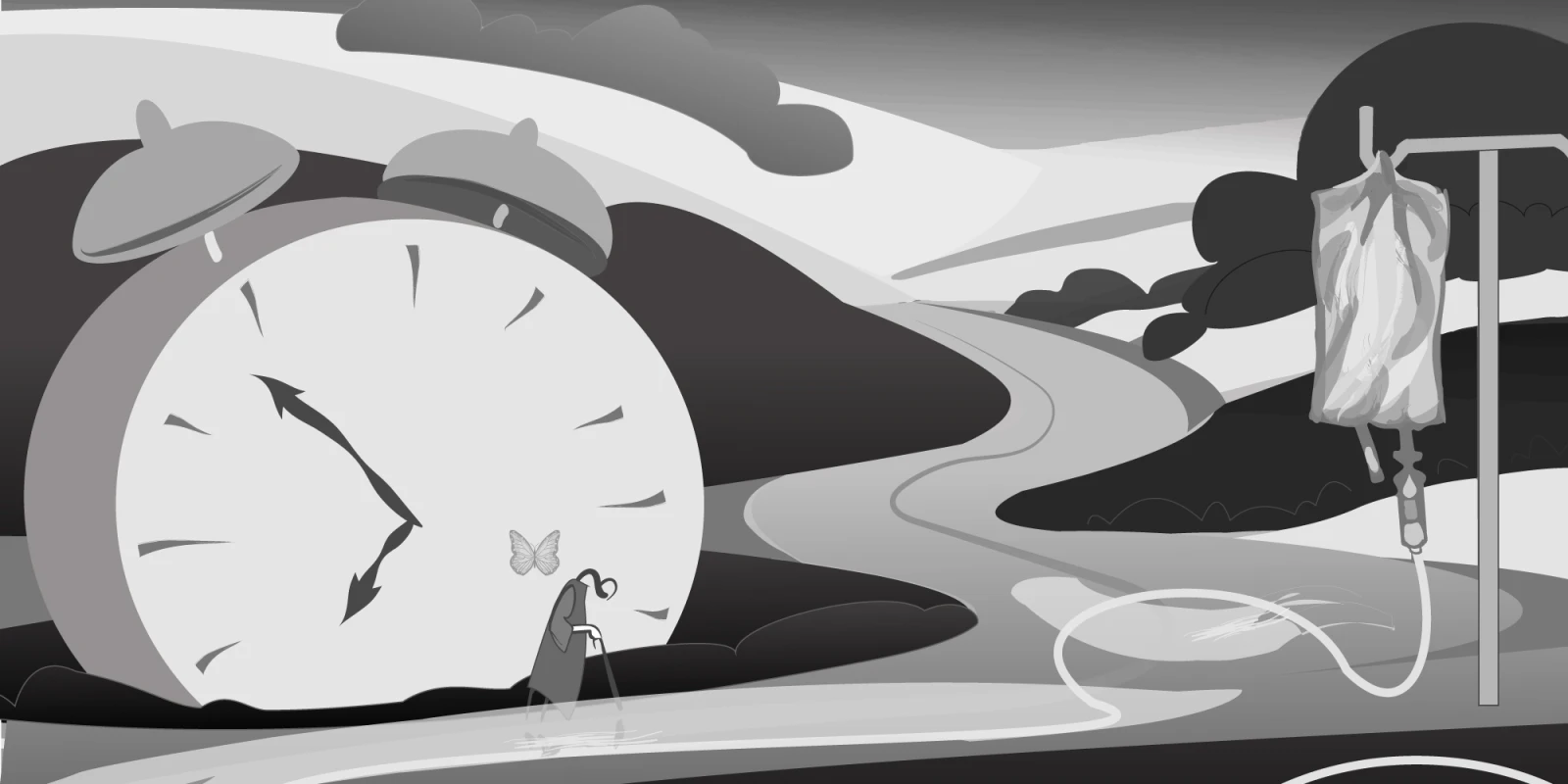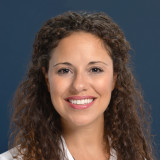 As a critical care surgeon, and someone who has become accustomed to delivering bad news to people in their most vulnerable moments, I faced nothing different on a cold day in January 2019. I walked into the room and positioned my chair close to the bed in between a loving couple, married almost 40 years. I did not know that this conversation would shift my perception of time and reality, and deepen my awareness of every person’s inevitable transition toward death. Time is slippery and ethereal, but all doctors, nonetheless, must grapple with this individual journey — death, or the specter of it — every day.
As a critical care surgeon, and someone who has become accustomed to delivering bad news to people in their most vulnerable moments, I faced nothing different on a cold day in January 2019. I walked into the room and positioned my chair close to the bed in between a loving couple, married almost 40 years. I did not know that this conversation would shift my perception of time and reality, and deepen my awareness of every person’s inevitable transition toward death. Time is slippery and ethereal, but all doctors, nonetheless, must grapple with this individual journey — death, or the specter of it — every day.
While all of us at some point think about our own mortality, the conversation I had with the husband of the couple made me aware of my own finitude in relation to how time affects us all. Mr. Smith was a retired dendrologist, who enjoyed a vibrant life and practice. He had suffered a massive stroke while driving that left him hemiplegic and bed-bound. He was 80 years old. As such a journey often goes, he has been spending his time in and out of nursing homes and hospital wards.
In the previous few months, Mr. Smith has been making difficult decisions about his care. He was not used to this new life of uncertainty. This hospital admission was because of a large infected stage IV sacral decubitus wound, bacteremia, and a 60-pound weight loss. Being severely malnourished and completely bed-bound, his wound was impossible to heal. I took over the surgery service that Monday. For that reason, I was the one to walk into the room that day to discuss the family’s plan of care.
In the midst of our conversation, in deciding whether Mr. Smith was up for going back to the OR for multiple debridements, he blurted out, “One minute changed my life. I keep asking doctors and nurses to tell me how much time I have left!”
He then looked at me and asked, “How much time?”
This is a question every doctor faces. As a trauma surgeon, I have had many difficult conversations — telling a mother that her 18-year-old son wouldn’t be coming home, or telling a child that her father died from overwhelming sepsis. These experiences transform a person. But what activated my heart that day was his spirit, his earnestness, and how his question caused me to really ask myself, “How much time does anyone have?”
He said, “When you’re young, you simply don’t prepare for death. Youth is all future.”
This is a truth I believe we all know, or, at a minimum, suspect. But to hear it, this time, whispered by a person who has shown up and contemplated the ultimate question, I was floored.
Mr. Smith’s probing eyes pierced my heart. I realized that my well-thought-out and standard answer wouldn’t cut it that day. Mr. Smith said that over the last few nights he had been thinking about the nature of time, because while his days were finite, in his bed-bound state, he felt time dilate.
Mr. Smith explained to me that there are two different realities of time — one that is mathematical and external, and one that is experiential and subjective. Objective time is one that is not dependent on the subjective experience of it. When he explained his observation, it resonated with my intuition.
To the dying patient, both realities of time lead simultaneously in processing futility and death. Mr. Smith asked about both at once, “How much time do I have left? If I keep fighting, does time become hospitalization and no more experience?”
Doctors measure each day by progress. Our days are filled with experiential time, but our state of being resides mostly in hours worked — objective time. As Mr. Smith explained, when we are young, we live in the future and measure our experiences by physical time and progress. Then, as we grow older and realize our own mortality, time becomes subjective.
Yet, despite the duality that time presents to each of us, what Mr. Smith taught me is that you must always think of time as being subjective.
For me, time seems to contract while I’m operating. This focused task makes the hands on the clock seem arbitrary. Six hours feel like one. Once I finish my case, the number of patients I see on rounds or in clinic becomes my measure of time. Through the rooms that make up my journey for the rest of the day, I experience moments like the one I had with Mr. Smith. These moments become my motivation to slow down.
Sitting and listening to Mr. Smith made me more aware that we all dance with time. Metrics measured by rotational orbits around the sun dictate to us how time manifests. Through this process, we experience and engage and connect with ourselves and others. Yet time, as Mr. Smith reminded me, is subjective no matter how the planets rotate and objectively impose time upon on us.
Mr. Smith told me that lying in his hospital bed, spending the rest of objective time making futile decisions about his care, is no way to experience time. In fact, the ticking of the clock on the wall was driving him crazy. He’d much rather fixate on the experiential time he has left — however many days that may be.
Telling a person they’re dying will never be easy, and what Mr. Smith taught me is that to process dying, a person must also process time. That day, I walked out of my patient’s room and his insights split me to my core. There are many care goals a doctor might achieve. Doctors can differ on which is paramount. What I do know is that the human experience, when pushed to its exit, gives us doctors an education that compels true listening from the heart.
Noran Barry is a trauma critical care surgeon in Bethlehem, PA. She is completing a fellowship at the University of Pittsburgh, Magee Women's Health Center, for breast surgical oncology in August of 2019. She is interested in medical ethics, health-care policy, and population health.
All names and identifying information have been modified to protect patient privacy.
Illustration by Jennifer Bogartz







